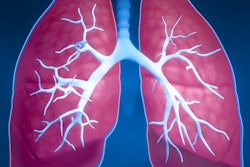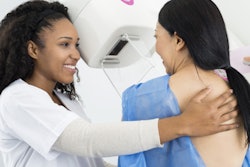Lesbian, gay, bisexual, transgender, queer, intersex, or gender‐nonconforming (LGBTQ+) individuals show decreased breast cancer screening rates, according to research published May 31 in Cancer.
A team led by Tyler Kratzer of the American Cancer Society (ACS) in Atlanta reported that bisexual women have a breast cancer screening prevalence of 81%, non-binary individuals a prevalence of 76%, and transgender men a prevalence of 65%.
The findings may be due to a number of factors, including fear that a provider will "refuse care due to gender identity or sexual orientation," "minority stress," fewer childbirths, and higher prevalence of alcohol use, Kratzer and colleagues noted.
"Breast cancer outcomes are affected by access to high‐quality screening and treatment," they wrote. "One recent study found that, compared with cisgender and heterosexual women, LGBTQ+ patients were more likely to experience delays between symptom onset and breast cancer diagnosis and to decline oncologist‐recommended treatment, and they were three times more likely to experience breast cancer recurrence."
LGBTQ+ people are at higher risk for cancer yet experience multiple barriers to high-quality healthcare access such as discrimination and shortfalls in provider knowledge of their medical needs, senior author Rebecca Siegel said in an ACS statement.
"Everyone deserves an equal opportunity to prevent and detect cancer early, which is why it’s so important to remove these roadblocks for this population," she said.
The study results highlight a need for effective interventions, according to the researchers.
"Insufficient access to high‐quality care, limited provider knowledge of LGBTQ+ patient needs, discrimination in the health care setting, and a lack of population‐based cancer occurrence data are barriers to health equity in LGBTQ+ populations," Kratzer and colleagues concluded. "Health systems have an opportunity to help inform these disparities through the routine collection of information on [sexual orientation and gender identity] to facilitate cancer surveillance and to mitigate them through education to increase awareness of LGBTQ+ health needs."
The complete study can be found here.



















